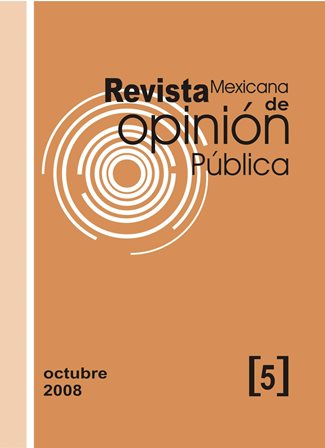Common places opaque: reflections of the Spanish elections
Main Article Content
Abstract
The present article approaches the electoral process that took place in March 2008 in Spain, with the goal of reformulating three concerns commonly expressed over the functioning of the Spanish democracy. The first common place is the allegedly exemplary condition of the Spanish democratic transition, the second one is the incapacity of politics for the relieving of conflicts, and finally, the growing strength of the two biggest political parties in Spain.
The author exhibits that, in the last Spanish elections, one of the fundamental landmarks of the Spanish democratic transition was violated, when Partido Popular made of terrorism a campaign weapon against Partido Socialista Obrero Español. The author points out that this strategy seemed to recall the Mexican elections of 2006, when Andrés Manuel López Obrador, candidate for Partido de la Revolución Democrática, was accused of being “a threat to Mexico”. The author argues that the democratic practice is cancelled when respect between legitimate adversaries is substituted for authoritarian defamations between unapproachable enemies.
Article Details
Citas en Dimensions Service

Revista Mexicana de Opinión Pública por Universidad Nacional Autónoma de México se distribuye bajo una Licencia Creative Commons Atribución-NoComercial-SinDerivar 4.0 Internacional.
Basada en una obra en http://revistas.unam.mx/index.php/rmop.




